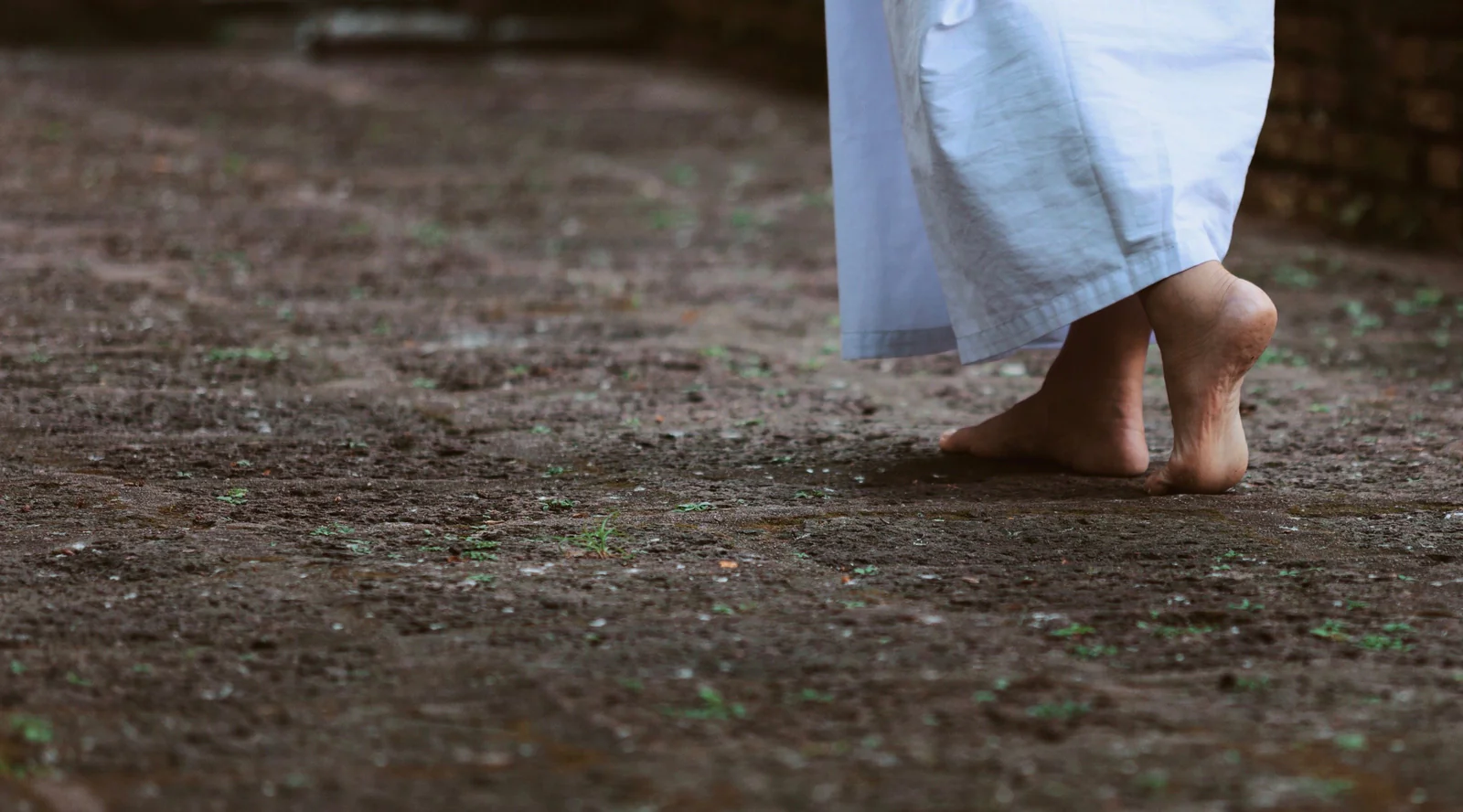Are you looking to improve your overall wellbeing and find inner peace? Look no further than meditation exercises.
Numerous studies, including one from Harvard University, have shown that meditation has significant physiological benefits for the brain.
In fact, researchers found that an 8-week meditation program can rebuild the gray matter of the brain responsible for thinking, perceiving, and cognitive functions.
Meditation is not only beneficial for the brain, but it also has a positive impact on physical health. It has been found to reduce blood pressure, fight anxiety, and alleviate pain.
By incorporating meditation exercises into your daily routine, you can enhance your mental and physical wellbeing.
Key Takeaways:
- Regular meditation can rebuild the gray matter of the brain and improve cognitive functions.
- Meditation exercises can help reduce blood pressure, anxiety, and pain.
- By incorporating meditation into your daily routine, you can enhance your overall wellbeing.
What are Meditation Exercises and Activities?
Meditation exercises and activities encompass a wide range of practices that can help quiet the mind and promote a sense of calm.
These activities can be as simple as focusing on your breath or as complex as practicing Transcendental Meditation.
The goal of meditation exercises is to bring awareness to the present moment, cultivate mindfulness, and achieve a state of inner peace.
When engaging in meditative activities, you are encouraged to let go of distractions and immerse yourself in the present experience.
This can include sitting quietly and observing your thoughts without judgment, practicing deep breathing exercises, or engaging in guided visualizations.
The key is to find a practice that resonates with you and allows you to enter a state of deep relaxation and mental clarity.
Meditative activities can be incorporated into your daily routine, providing a dedicated space for you to recharge and reconnect with yourself.
Whether it’s through the practice of mindfulness techniques, guided meditation, or relaxation exercises, these activities offer an opportunity to quiet the mind, reduce stress, and enhance overall wellbeing.
By incorporating meditation into your daily life, you can cultivate a greater sense of self-awareness, improve your ability to manage emotions, and experience a more balanced and fulfilling existence.
“Meditation exercises and activities offer an opportunity to quiet the mind, reduce stress, and enhance overall wellbeing.”
3 Meditation Breathing Exercises
Deep breathing exercises are a fundamental aspect of meditation and can have profound effects on relaxation and stress reduction.
By focusing on the breath, you can create a sense of calm and tranquility within yourself. Here are three meditation breathing exercises that you can incorporate into your practice:
1. Stimulating Breath or Bellow Breath
This breathing exercise involves taking rapid, deep breaths to increase alertness and energy.
To practice this technique, sit comfortably and take a deep breath in through your nose.
Then, exhale forcefully through your mouth, making a “ha” sound.
Continue this pattern of inhaling through your nose and exhaling forcefully until you feel a sense of invigoration.
2. Relaxing Breathing Exercise (4-7-8 Breathing)
The 4-7-8 breathing technique is a simple yet effective way to induce relaxation.
Start by sitting in a comfortable position and close your eyes. Inhale deeply through your nose for a count of 4.
Hold your breath for a count of 7.
Finally, exhale slowly through your mouth for a count of 8.
Repeat this cycle several times, focusing on the rhythm of your breath and allowing your body to relax with each exhalation.
3. Counting the Breath
This breathing exercise involves counting your breaths to bring your attention into the present moment.
Find a relaxed position and close your eyes. Take a slow and deep breath in through your nose, counting “one” in your mind.
Then, exhale slowly and completely, counting “two” in your mind.
Continue this pattern of inhaling and exhaling while counting each breath up to ten.
If your mind wanders, gently bring your focus back to the breath and start counting from one again.
By incorporating these meditation breathing exercises into your daily routine, you can enhance your ability to relax, reduce stress, and cultivate a greater sense of calm and well-being.

3 Exercises to Help with Anxiety and Stress
When it comes to managing anxiety and stress, incorporating meditation exercises into your daily routine can be incredibly beneficial.
These exercises can help calm the mind, relax the body, and provide a sense of peace and serenity. Here are three powerful meditation techniques that can help you alleviate anxiety and reduce stress:
- Body Scan Meditation: This exercise involves systematically focusing on different parts of your body, starting from the top of your head and moving down to your toes. As you bring your awareness to each body part, imagine releasing any tension or stress that you may be holding. This practice promotes relaxation and helps you tune into the present moment.
- Diaphragmatic Breathing: Also known as deep belly breathing, diaphragmatic breathing is a technique that involves consciously breathing into your diaphragm rather than shallowly into your chest. By taking slow, deep breaths and focusing on the sensation of your breath entering and leaving your body, you can activate the body’s relaxation response and reduce anxiety.
- Progressive Muscle Relaxation: In this exercise, you systematically tense and then release different muscle groups in your body, starting from your feet and moving up to your head. By intentionally tensing and then relaxing each muscle group, you can promote physical relaxation and release built-up tension, which in turn helps reduce stress and anxiety.
By incorporating these meditation exercises into your daily routine, you can cultivate a sense of calm and balance in the midst of anxiety and stress.
Remember to approach these practices with an open mind and a gentle, non-judgmental attitude. With consistent practice, you can develop a greater sense of self-awareness and resilience, enabling you to navigate life’s challenges with ease.

Conclusion
Incorporating meditation exercises into your daily routine can have a profound impact on your mental health and overall wellbeing.
By prioritizing self-care practices and integrating mindfulness into your daily life, you can cultivate a greater sense of peace and serenity.
Meditation exercises provide an opportunity to quiet the mind, reduce stress and anxiety, and improve your concentration.
Taking the time to explore different techniques and finding a meditation practice that resonates with you is essential for maintaining a healthy lifestyle.
Make meditation a regular part of your daily routine. Create a dedicated space where you can comfortably engage in your mindfulness practice.
Find a time of day that works best for you, whether it’s in the morning to set a positive tone for the day or in the evening to unwind and relax.
Remember, your mental health matters. Prioritize self-care and make meditation a cornerstone of your wellbeing.
Embrace the power of meditation exercises and experience the transformative effects they can have on your mind, body, and spirit.
FAQ
What are some meditation exercises and activities?
Meditation exercises and activities can range from simple practices like deep breathing to more complex techniques such as repeating mantras or practicing Transcendental meditation.
Any activity that helps quiet the mind and bring a sense of calm can be considered a meditative activity. This can include sitting quietly and focusing on the breath, practicing mindfulness, or observing the world around you in a state of quiet contemplation.
How can deep breathing exercises help with relaxation and stress reduction?
Deep breathing exercises are an integral part of meditation and can help induce relaxation and reduce stress. Dr. Andrew Weil, a pioneer in integrative medicine, recommends three types of breathing exercises: the Stimulating Breath or Bellow Breath, Relaxing Breathing Exercise (4-7-8 Breathing), and Counting the Breath. These techniques can help regulate and control the breath, clear the mind, and promote a state of relaxation and calm.
What are some meditation exercises that can help with anxiety and stress?
Studies have shown that mindfulness meditation can be effective in reducing anxiety, stress, and even symptoms of depression. There are several exercises that can help alleviate these conditions, including the Body Scan Meditation, which involves focusing on different areas of the body and releasing tension; Diaphragmatic Breathing, which promotes relaxation and calms the nervous system; and Progressive Muscle Relaxation, which involves tensing and releasing muscles throughout the body to induce relaxation.
What are the benefits of incorporating meditation exercises into a daily routine?
Incorporating meditation exercises into your daily routine can have numerous benefits for your mental health and overall wellbeing. From reducing stress and anxiety to improving concentration and sleep, meditation can be a powerful tool for self-care. Whether you choose to focus on breathing exercises, body scans, or visualizations, finding a meditation practice that resonates with you is key. Take the time to explore different techniques and make meditation a regular part of your healthy lifestyle. By prioritizing your mental health and practicing mindfulness, you can enhance your overall wellbeing and find greater peace and serenity in your daily life.




























































